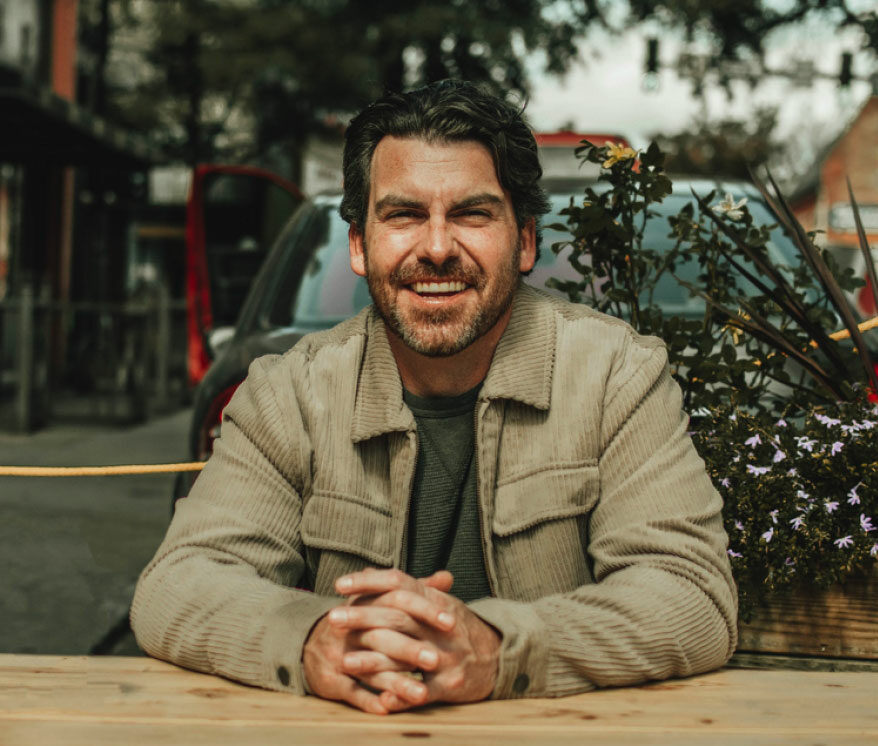Downtown business owner Jason Jacobs is challenging incumbent Commissioner Melissa Link in District 2, an area that includes Boulevard, Normaltown and part of inner East Athens.
Link has been an ACC commissioner since 2015, except for a brief hiatus in 2022–2023, when the state legislature placed her in former Commissioner Mariah Parker’s district, causing Link to lose her seat. When Parker stepped down, Link ran again, winning by a large margin in the new district against former school board member Kirrena Gallagher.
On paper, a progressive incumbent like Link should be difficult to defeat in this district, which is among the most liberal of any in Athens. Despite this, Jacobs believes that she’s not as popular in the district as she appears from past election results.
Recently, Link caused outrage among conservatives for a statement she made after the killing of nursing student Laken Riley. While Riley’s alleged murderer is Latino and did not use a firearm, Link criticized “white men with weapons of war” in her speech, calling them “monsters.” In the same speech, she excoriated former President Donald Trump as a “traitorous, insurrectionist, bigoted, lying, cheating, fraudulent, philandering rapist.”
Over the years, Link’s many controversial statements haven’t only offended Republicans. In 2022, she was roundly criticized for an off-hand comment in which she accused UGA football players of “raping and murdering.” Alvin Sheats, president of the Clarke County NAACP, called these remarks “outrageous” and demanded that she apologize. Jeremy Longo, a former UGA defensive lineman, even sued Link for slander.
“The language that’s come from my opponent in the past has been more divisive than it has been uniting,” Jacobs told Flagpole. “I’d like to see us become more united. It feels like the extremes on both sides are pushing further and further apart and forgetting about the people in the middle.”
Link was referring to former UGA linebacker Adam Anderson, who recently pleaded guilty to misdemeanor sexual battery, and former UGA wide receiver Akhil Crumpton, who has been convicted on charges related to the murder of a RaceTrac clerk in 2021 and will spend 30 years in federal prison.
In the uproar over her past comments, Link has been unapologetic. She has refused to back down, particularly when it comes to statements she’s made about Trump and the growing far-right movement in the U.S. “There is a rising movement towards fascism that is documented,” Link told Flagpole. “There is an intention to install autocratic fascism and theocracy in this nation. Women don’t even have control over their bodies in half the states in the union. We’ve got to speak out. We’ve got to fight. Those of us who are able to, we have a duty to.”
When it comes to local issues, Link’s main focus has been on historic preservation and protecting in-town neighborhoods from gentrification. For example, she worked to save the historic Mack-Burney House on Reese Street, which could have been demolished as part of The Varsity redevelopment but was instead kept as permanently affordable housing managed by the Athens Land Trust.
Link was instrumental in the creation of the West Downtown Historic District, which she feels will help to preserve downtown’s unique character. “I advocated for the West Downtown Historic District because in a blink of an eye the rest of downtown could just be covered in student high-rises. That important history of Athens being a music and cultural mecca would be erased,” Link said. “I really believe in protecting these in-town neighborhoods.”
Link’s determination to keep student high-rises contained near campus as much as possible is likely to win her support in the district, but some housing advocates have been frustrated by her protectionist tendencies. In 2022, Link cast the deciding vote against allowing homeowners to build two-bedroom accessory dwelling units such as garage apartments or “in-law suites.” Advocates see accessory dwelling units as a relatively painless way to increase housing density and help reduce the price of rent. However, Link said at the time that allowing two-bedroom accessory units would be a “betrayal” of her constituents.
“I believe [one-bedroom accessory units] should be perfectly legal in most of our communities,” Link told Flagpole. “The thing that gave me pause with that [two-bedroom] ordinance was that I see what’s happening in our extremely dense in-town communities where we already do allow that kind of multi-unit development… It’s a mess, the parking is a mess. Almost every week, I get a call from some little old lady trapped in her driveway.”

Jacobs said at a recent candidate forum that he supported accessory dwellings, although he was not specific about the number of bedrooms he would want to allow.
Jacobs’ main policy priority is addressing the problem of homelessness in Athens. When his pregnant wife was accosted by an aggressive panhandler back in 2015, Jacobs said he reached out to the local government for help, but to no avail.
“I spoke to the mayor at the time, Nancy Denson, and figured we were going to do something, but I didn’t see a whole lot done,” Jacobs said. “I kept getting told, we can’t do anything about this. We can’t, we can’t, instead of how do we?”
With the influx of federal funds after the COVID-19 pandemic, the local government has finally gotten serious about the issue. Last year, the commission approved a strategic plan to reduce and prevent homelessness, powered by $5 million in American Rescue Plan funding. As the commission was preparing to vote on the plan, Jacobs spoke up to oppose it. During public comment, he expressed concern that the plan would be ineffective and even potentially dangerous because it would encourage more people experiencing homelessness to come into Athens.
“One of the things that this plan doesn’t talk about are the consequences of what could go wrong with the homeless coming into our town,” Jacobs told commissioners. “I do want to do something with the homeless, don’t get me wrong, but this plan is not it. To me, it’s just throwing money at the wall and seeing what sticks.”
Jacobs later signed up to serve on the board of the Athens Homeless Coalition but ended up resigning after only a few months. In his resignation letter, he explained that the reason he stepped down had to do with Laken Riley’s killing.
“In light of the recent tragedy of the murder of Laken Riley at the hands of someone that was not from Athens and should not have been in Athens, I cannot in good conscience be part of any actions that would welcome another such person into our community,” Jacobs wrote. “I don’t see this work as having any positive effect on Athens.”
Since running for office, Jacobs has moderated his tone. He now says that the Athens Homeless Coalition will do “a good job at bringing a lot of organizations together to work more effectively.” He said that they are “taking some good steps” but still feels that the plan has issues that are “being talked around or swept under the rug.”
In particular, Jacobs opposes an idea to build a new low-barrier homeless shelter designed to get people off the street as soon as possible and into recovery programs. He is worried that such a shelter would be dangerous to residents and might trigger them to use alcohol and drugs again.
“Low-barrier kind of meant no barrier. There was no requirement for sobriety,” Jacobs told Flagpole, explaining that the proposed shelter was a major reason why he resigned from the homeless coalition. “People who are trying to get sober would then have to be with people who weren’t, and that could trigger them and threaten their sobriety. I also thought the no criminal background check on the low-barrier shelter could be a bit dangerous… Those two things really kind of ate at me and I felt disillusioned in that I didn’t think I would be able to make a difference in changing that.”
Jacobs stresses that he does not oppose the creation of a new homeless shelter, just that he wants treatment for mental health problems and substance abuse to be front and center. “We need to treat that root cause [of homelessness] and not necessarily the symptom of not having a home,” he said.
Studies have shown that the “housing first” approach favored by the homeless coalition is more effective than “treatment first” approaches at stabilizing clients over the long term, especially for those experiencing chronic homelessness.
Link said she strongly supports the homeless coalition’s approach. “How do you sober up on the streets? Let’s get people in a safe, supervised environment where they can gather their thoughts and have some peace and direct access to services,” Link said. “The concept is to have services on site, [to] have counselors on site. To offer people the most easy, convenient and direct access to treatment and support.”
This election will take place on May 21. Early voting starts on Apr. 29.
Like what you just read? Support Flagpole by making a donation today. Every dollar you give helps fund our ongoing mission to provide Athens with quality, independent journalism.










